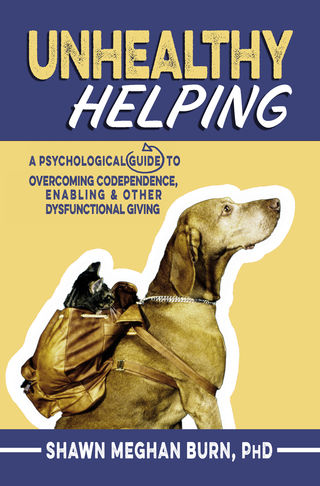Codependency
Parents of Grads, Beware of the Enabling Danger Zone
Supporting Our Emerging Adult Children Without Enabling Them
Posted June 4, 2013
Congratulations parents! You deserve lots of credit for your child’s graduation. Your support was critical in helping your emerging adult get a degree. But now that your offspring has graduated, you enter the enabling danger zone.
You are used to supporting your child; you have been doing it for a long time! And well! But as childhood ends and adulthood begins, your relationship must undergo a change. While it was once good parenting to manage your child’s life and provide for their needs, it is now good parenting to back off, providing only that which helps your emerging adult transition into adulthood. It is truly the end of an era in the life of your relationship.
You must pull back and require that they step up. Otherwise you may prevent the development of normal adult competencies such as being financially independent and responsible, dealing with life’s bureaucracies, attaining gainful employment, and cooking, shopping, and cleaning.
You must guard against continuing your child’s dependency past its natural expiration date because you feel guilty about your past parenting, fear a fight, or fear that they won’t want a relationship with you if they no longer depend on your resources. You must hold back from rescuing when they struggle, except in rare circumstances. You must let them do things their way and avoid doing their adult tasks for them even when you know a better way. You must understand that too much help communicates a lack of faith in them and undermines their confidence and their willingness to try.
This is a letting go time, a time to redefine ourselves and our parent role, a time to trust that they love us enough that we will not lose them when we stop the money, a time to trust that they can figure it out. It is a time to gently push our babies out of the comfy home nest and assure them they can fly (even if we worry their wings are not strong enough).
I have seen many cases where parents-child relationships failed to make this important transition. The short-term result: their children stayed close and safe. But the long-term result: depletion of the parent’s emotional, physical, and financial resources, relationship strain, shame, and children cheated out of becoming mature, fully functioning adults proud of their self-reliance and accomplishments.
It was difficult to set boundaries with my emerging adult children. I feared their rejection and anger. I worried whether they would be okay. It was sometimes painful to watch them find their way. But I found comfort and strength in knowing that being a good parent required it since ultimately it gave them a better chance at success (and me a better chance at a comfortable retirement).

For more information on healthy helping and giving, see my book Unhealthy Helping: A Psychological Guide to Overcoming Codependence, Enabling, and Dysfunctional Giving available in paperback on Amazon and for Kindle, Ibook (Apple), Nook, and Kobu e-readers.
See also my other blogs on the topic of un/healthy helping and giving:
When Good Intentions Aren’t Enough
How to Help Someone In An Abusive Relationship
Are You A Codependent Beast of Others’ Burdens?
How Helping A Friend Can Go Horribly Wrong
12 Signs You’re Giving Too Much
Does Codependence Run In Your Family?
Codependent and Unhealthy Helping Mindtraps


